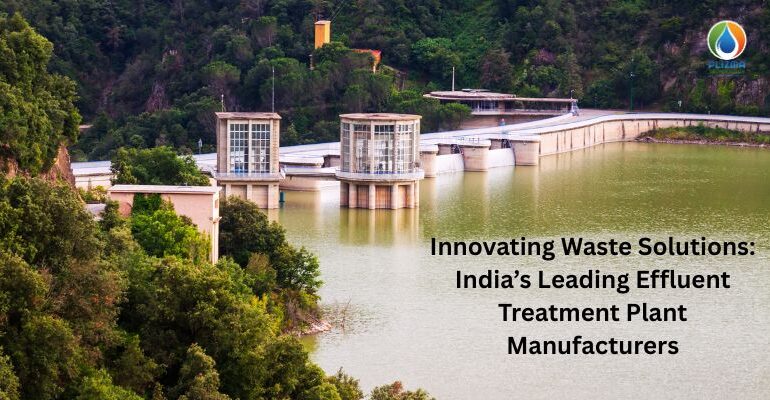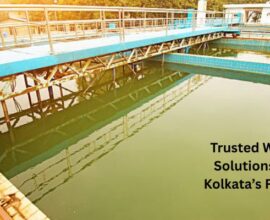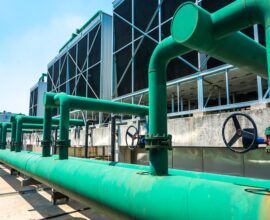As industries grow, so does the challenge of managing wastewater responsibly. Across India, businesses are turning to advanced technologies and sustainable methods to ensure clean discharge and environmental compliance. Choosing the right effluent wastewater treatment plant supplier can make all the difference between regulatory hassles and operational efficiency.
Why Effluent Treatment Matters More Than Ever
Industrial effluents-often loaded with chemicals, heavy metals, and biological waste-pose serious threats to water bodies and ecosystems. According to data from the Central Pollution Control Board (CPCB), untreated wastewater from factories remains one of the top causes of river pollution in India. This growing concern has prompted stricter norms and a rising demand for effective effluent treatment plant (ETP) solutions.
ETPs don’t just help industries stay compliant-they represent a commitment to corporate responsibility. A well-designed effluent plant reduces environmental footprints, recovers reusable water, and saves long-term operational costs.
Understanding Effluent Treatment Plants
An effluent treatment plant is an integrated system that purifies industrial wastewater before releasing it into the environment or reusing it within operations. The process typically involves:
Primary Treatment: Physical removal of solids and suspended particles through screening and sedimentation.
Secondary Treatment: Biological degradation of organic matter using microbes.
Tertiary Treatment: Chemical and advanced filtration methods to remove residual contaminants.
Disinfection: Use of UV, chlorine, or ozone to ensure pathogen-free water.
Modern ETPs also employ technologies like reverse osmosis, membrane bioreactors, and electrocoagulation to achieve high purification efficiency.
India’s Top Manufacturers Leading the Change
In India, a new generation of effluent water treatment plant manufacturers is transforming the industry with innovation and sustainability. These companies blend engineering excellence with eco-conscious design. Here’s what sets leading manufacturers apart:
Customized Designs: Tailored systems that fit the wastewater characteristics of specific industries—textile, chemical, food processing, or pharmaceuticals.
Energy Efficiency: Use of low-energy aeration systems and automated controls to reduce electricity consumption.
Zero Liquid Discharge (ZLD): Many modern plants now aim for ZLD, ensuring no drop of wastewater leaves the facility untreated.
Renowned names in India’s ETP sector are also focusing on remote monitoring, data-driven maintenance, and IoT integration to make wastewater management smarter and more efficient.
Choosing the Right ETP Manufacturer: Key Considerations
When selecting a manufacturer, businesses should consider more than just cost. Look for a partner who understands your operational realities and compliance needs. Here’s a quick guide:
Experience and Expertise: Established players with proven industrial case studies tend to deliver reliable results.
Technology Stack: Check if they use advanced processes like MBBR, MBR, or RO systems.
After-Sales Support: Regular maintenance, spare parts availability, and technical training can ensure long-term performance.
Compliance Assurance: The manufacturer should help you meet Pollution Control Board (PCB) standards effortlessly.
Benefits of Installing an Effluent Treatment Plant
Beyond compliance, ETPs offer tangible benefits for modern industries:
- Significant water savings through recycling and reuse.
- Reduced environmental liability and penalties.
- Enhanced brand reputation as a sustainable business.
- Lowered costs of raw water procurement and disposal.
The Future of Effluent Management in India
With rapid industrialization and urban expansion, India’s focus on wastewater treatment is set to intensify. The government’s National Clean Ganga Mission and other sustainability initiatives are pushing industries to adopt more efficient water treatment infrastructure. Effluent water treatment plant manufacturers are responding by embracing modular designs, AI-based monitoring, and circular economy models that convert waste into reusable resources.
FAQs About Effluent Water Treatment Plants
1. What is the purpose of an effluent treatment plant?
It treats industrial wastewater to remove harmful contaminants, making the water safe for reuse or discharge without harming the environment.
2. Which industries require effluent treatment systems?
Industries like textiles, pharmaceuticals, food processing, tanneries, and chemicals are legally required to have ETPs as per environmental guidelines.
3. How long does it take to install an ETP?
Depending on the plant’s size and complexity, installation can take anywhere between 2 to 6 months, including design and testing phases.
4. Is treated water from an ETP reusable?
Yes. Treated water can often be reused for processes like cooling, gardening, or cleaning, depending on the quality of purification achieved.
Final Thoughts
Effluent treatment is no longer an optional investment-it’s a moral and environmental imperative. Partnering with reliable effluent water treatment plant manufacturers ensures your business not only meets legal standards but also contributes to a cleaner, more sustainable future. After all, every drop saved today secures tomorrow’s water supply.
Direction: Get Here





